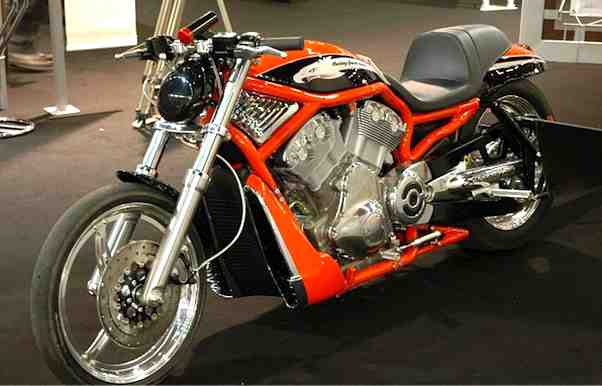
Harley-Davidson’s organizational culture is linked to the chopper biker culture. The organizational culture specifies the traditions, habits, and values that influence employees’ behaviors and managerial decisions. As one of the top players in the global motorcycle market, Harley-Davidson (H-D) maintains an organizational culture that supports the company’s industry position. In addition, this corporate culture strengthens the company’s customer base of bikers loyal to the brand and the chopper biker culture. As such, the chopper biker culture and the company’s organizational culture relate to each other. This cultural link enhances the effectiveness of Harley-Davidson’s marketing mix (4Ps) in gaining and retaining customers and persuading them to buy the company’s products.
The custom chopper biker culture permeates Harley-Davidson to define the company’s organizational culture. This business culture supports the company and its position in the motorcycle market. Also, Harley-Davidson’s mission statement and vision statement push for building the work culture in relation to the brand and its significance to the biker culture.
Traits of Harley-Davidson’s Organizational Culture
Harley-Davidson’s organizational culture reflects the chopper biker culture in the motorcycle market. This situation benefits the company in maintaining a large base of loyal customers. The following are the most significant characteristics of Harley-Davidson’s organizational culture:
- Bold rebellious attitude
- Customer-centrism
- Harley-Davidson’s business values
- Leadership development
Bold Rebellious Attitude. This characteristic of Harley-Davidson’s organizational culture relates to the chopper biker culture in the market, especially in the United States. People in the custom chopper biker culture are typically seen as bold and rebellious. The motorcycle manufacturer is strongly associated with this market culture.
Customer-Centrism. Harley-Davidson’s organizational culture emphasizes consideration for customers’ preferences and expectations. For instance, the company develops its designs based on current and emerging customer preferences for custom/chopper motorcycles. Through this trait of the organizational culture, H-D ensures customer satisfaction.
Harley-Davidson’s Business Values. To guide employees and managerial decisions, Harley-Davidson promotes suitable values through its organizational culture. For example, the company’s core values include integrity, accountability, diversity, teamwork, and creativity. This characteristic of the organizational culture supports business ethics, minimizes problems in the long term, and enables the business strengths identified in the SWOT analysis of Harley-Davidson.
Leadership Development. Harley-Davidson promotes business effectiveness through leadership in its organizational culture. For instance, the company facilitates leadership development for innovation and speed throughout the organization. This condition improves the company’s human resource management for continuous leadership from within the motorcycle business organization. Harley-Davidson’s company structure (business structure) is designed to have teams, groups, and divisions that support human resource motivation for the leadership objective of this work culture.
Harley-Davidson’s Culture: Advantages & Disadvantages
An advantage of Harley-Davidson’s organizational culture is its support for a strong match between the company’s business decisions and customers’ lifestyles and preferences. This cultural trait contributes to the competitiveness of the company’s products against Ducati, Yamaha, BMW, Honda, and other motorcycle manufacturers. Also, the company culture ensures continuous leadership through internal leadership development efforts. However, a disadvantage is that customer-centrism requires Harley-Davidson’s organizational culture to change according to trends in customers’ lifestyles and changes in the custom/chopper biker culture. This factor may cause the company culture to deviate from its original quality and lose its benefit of keeping the attractiveness of the brand.
References
- AlSaied, M. K., & Alkhoraif, A. A. (2024). The role of organizational learning and innovative organizational culture for ambidextrous innovation. The Learning Organization, 31(2), 205-226.
- Harley-Davidson Careers.
- Harley-Davidson, Inc. – Our Strategy.
- Palumbo, R., & Douglas, A. (2024). The secret ingredient? Uncovering the effect of organizational culture on quality management: A literature review. International Journal of Quality & Reliability Management, 41(1), 195-268.
- Shulman, J. D., & Gu, Z. (2024). Making inclusive product design a reality: How company culture and research bias impact investment. Marketing Science, 43(1), 73-91.